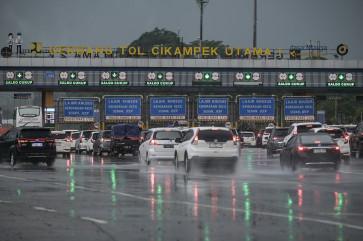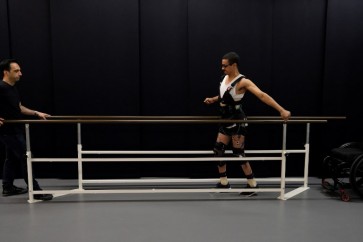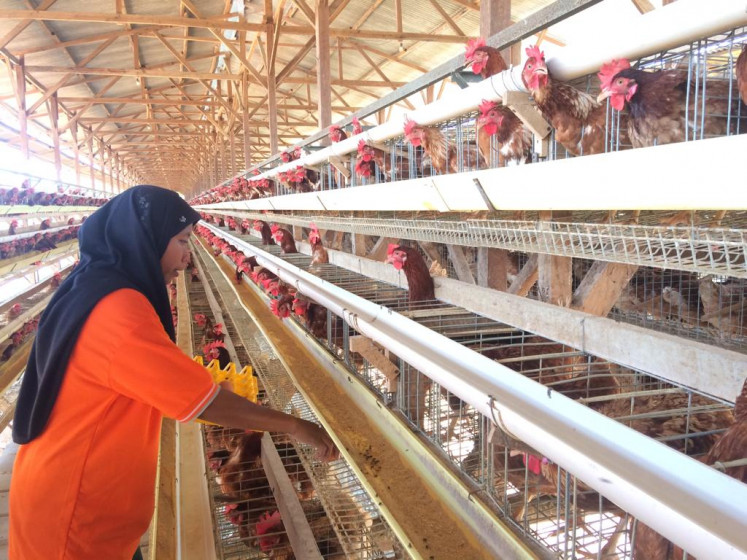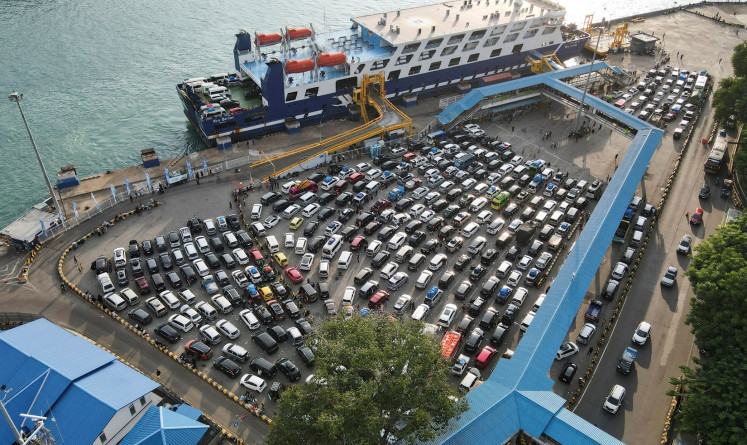Tesla's EU sales plunge 49% year-on-year in first two months of 2025
As competition grows, and ahead of the launch of its new Model Y mid-size SUV, Elon Musk's battery-electric (BEV) brand has sold 42.6 percent fewer cars in Europe so far this year, data from the European Automobile Manufacturers Association (ACEA) showed.
Change text size
Gift Premium Articles
to Anyone
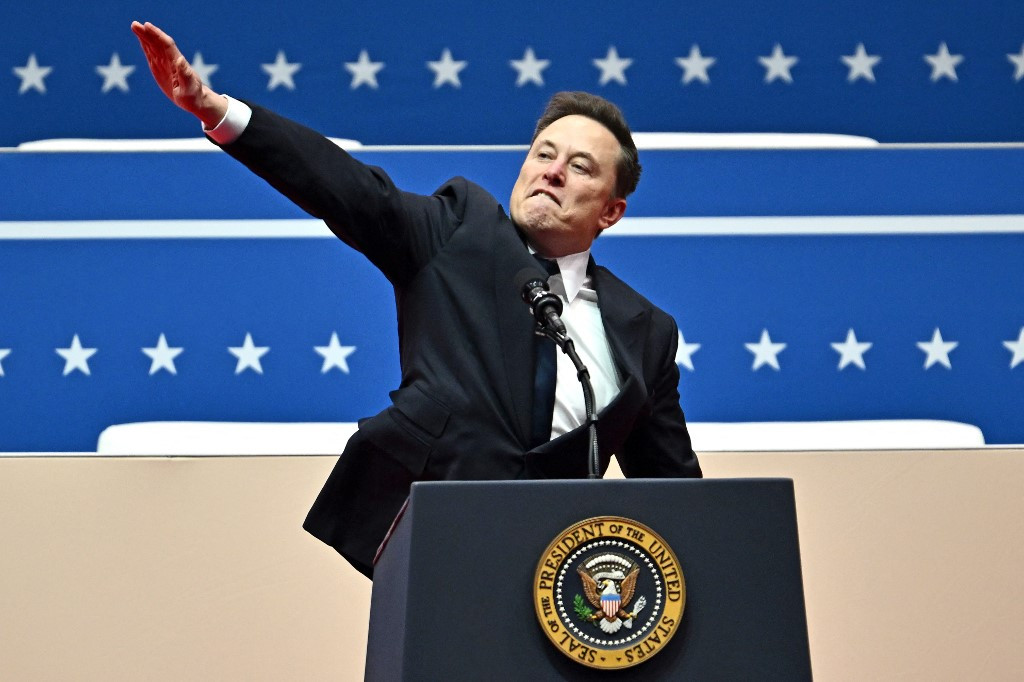 Tesla and SpaceX CEO Elon Musk gestures as he speaks during the inaugural parade inside Capitol One Arena, in Washington, DC, on Monday, January 20, 2025.
(AFP/Angela Weiss)
Tesla and SpaceX CEO Elon Musk gestures as he speaks during the inaugural parade inside Capitol One Arena, in Washington, DC, on Monday, January 20, 2025.
(AFP/Angela Weiss)
T
esla's market share in Europe continued to shrink year-on-year in February, data showed on Tuesday, as sales of the all-electric car maker dropped for a second consecutive month despite rising overall EV registrations on the continent.
As competition grows, and ahead of the launch of its new Model Y mid-size SUV, Elon Musk's battery-electric (BEV) brand has sold 42.6 percent fewer cars in Europe so far this year, data from the European Automobile Manufacturers Association (ACEA) showed.
Tesla commanded 1.8 percent of the total market and 10.3 percent of the BEV market in February, down from 2.8 percent and 21.6 percent last year respectively.
It sold fewer than 17,000 cars in the European Union, Britain and European Free Trade Association countries, compared to over 28,000 in the same month in 2024.
Tesla currently faces a number of challenges in Europe. The EV maker has a smaller, ageing lineup while traditional automaker rivals and new Chinese entrants alike continue to launch new, often cheaper electric models.
Musk, the company's CEO, has also stirred controversy by courting far-right parties in Europe, which has added to Tesla's sales slump.
Overall, BEV sales in the same markets were up 26.1 percent versus February 2024, even as total car sales fell 3.1 percent, according to the ACEA.
An EU filing showed last week that Tesla had formed a pool to sell carbon credits to more than half a dozen automakers as they try to meet European CO2 emission targets which came into effect in January.
While based on 2024 figures, analysts estimate that Tesla's sales can more than compensate for those companies' emissions, the situation might change if its sales continue to drop.
The EU introduced the targets to help EV pickup in the bloc, but it is expected to approve on Tuesday a relaxation of those measures, to allow a three-year averaging of fleet emissions.
While total new car registrations in the EU fell 3.4 percent in February, BEV sales jumped 23.7 percent, a second consecutive increase, while hybrid car (HEV) sales rose 19 percent.
Electrified vehicles - either BEV, HEV or plug-in hybrids (PHEV) - sold in the bloc accounted for 58.4 percent of all passenger car registrations in February, up from 48.2 percent a year earlier.
"2025 has started really brightly for Europe's electric car market," E-Mobility Europe's secretary general Chris Heron told Reuters.
"We are seeing the early impacts from manufacturer plans to meet the EU's scheduled CO2 limits".



